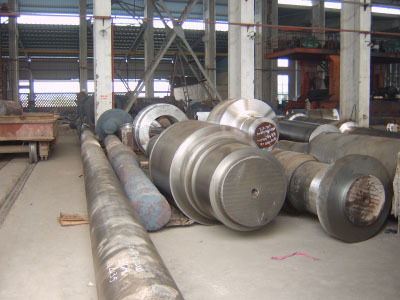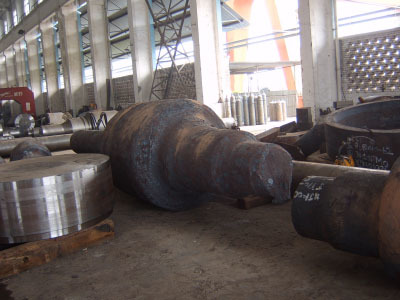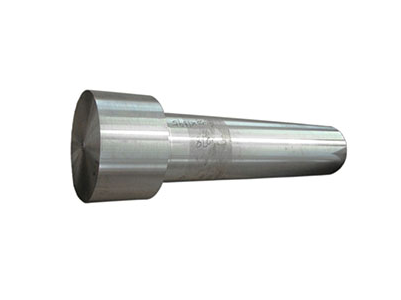Understanding Open-Die Forged Shafts in Steel Production for Drivetrain Applications
Release Time:
Nov 10,2025
Open-die forging is a widely used manufacturing process in the production of steel components, particularly in the automotive and drivetrain sectors. This method involves shaping metal through deformation between two dies that do not enclose the material completely, allowing for significant flexibility and customization. One of the critical applications of open-die forging is in the creation of sh

Open-die forging is a widely used manufacturing process in the production of steel components, particularly in the automotive and drivetrain sectors. This method involves shaping metal through deformation between two dies that do not enclose the material completely, allowing for significant flexibility and customization. One of the critical applications of open-die forging is in the creation of shafts used in steel production, which play a vital role in drivetrain systems.
The primary advantage of using open-die forged shafts lies in their material integrity and mechanical properties. The forging process enhances the grain structure of the metal, resulting in improved strength and toughness compared to conventionally cast or machined parts. This is especially important in automotive applications, where the drivetrain components must withstand high levels of stress and fatigue during operation. As a result, open-die forged shafts are able to deliver superior performance, contributing to the overall reliability of the vehicle.
Additionally, open-die forging allows for the production of large and complex shapes, which can be tailored to specific applications. This flexibility is particularly beneficial in the automotive industry, where different vehicle types and performance requirements necessitate a wide variety of shaft designs. The ability to create custom shapes and sizes means that manufacturers can optimize their components for weight, strength, and aerodynamics, leading to more efficient vehicles.
Another important aspect of open-die forged shafts is their cost-effectiveness in large production runs. While the initial setup for forging may be higher compared to other manufacturing methods, the reduction in machining time and waste often leads to significant savings in the long run. This efficiency makes open-die forging an attractive option for companies looking to scale their production of drivetrain components without compromising on quality.
From a sustainability perspective, open-die forging is also advantageous. The process typically results in less material waste compared to casting or machining methods, aligning with the industry's increasing focus on environmentally friendly practices. Moreover, the superior durability of forged components can lead to longer service life and reduced frequency of replacements, further contributing to sustainability goals.
In summary, open-die forged shafts are essential components in steel production, particularly within the automotive industry's drivetrain systems. Their ability to enhance material properties, allow for design flexibility, and contribute to cost efficiency makes them a preferred choice for manufacturers. As the demand for high-performance, reliable automotive components continues to grow, understanding the benefits of open-die forging will be crucial for industry stakeholders.
The primary advantage of using open-die forged shafts lies in their material integrity and mechanical properties. The forging process enhances the grain structure of the metal, resulting in improved strength and toughness compared to conventionally cast or machined parts. This is especially important in automotive applications, where the drivetrain components must withstand high levels of stress and fatigue during operation. As a result, open-die forged shafts are able to deliver superior performance, contributing to the overall reliability of the vehicle.
Additionally, open-die forging allows for the production of large and complex shapes, which can be tailored to specific applications. This flexibility is particularly beneficial in the automotive industry, where different vehicle types and performance requirements necessitate a wide variety of shaft designs. The ability to create custom shapes and sizes means that manufacturers can optimize their components for weight, strength, and aerodynamics, leading to more efficient vehicles.
Another important aspect of open-die forged shafts is their cost-effectiveness in large production runs. While the initial setup for forging may be higher compared to other manufacturing methods, the reduction in machining time and waste often leads to significant savings in the long run. This efficiency makes open-die forging an attractive option for companies looking to scale their production of drivetrain components without compromising on quality.
From a sustainability perspective, open-die forging is also advantageous. The process typically results in less material waste compared to casting or machining methods, aligning with the industry's increasing focus on environmentally friendly practices. Moreover, the superior durability of forged components can lead to longer service life and reduced frequency of replacements, further contributing to sustainability goals.
In summary, open-die forged shafts are essential components in steel production, particularly within the automotive industry's drivetrain systems. Their ability to enhance material properties, allow for design flexibility, and contribute to cost efficiency makes them a preferred choice for manufacturers. As the demand for high-performance, reliable automotive components continues to grow, understanding the benefits of open-die forging will be crucial for industry stakeholders.
多行文本内容元素
富文本内容绑定数据后可解析HTML语言内容
Key words:
News Hotspot








